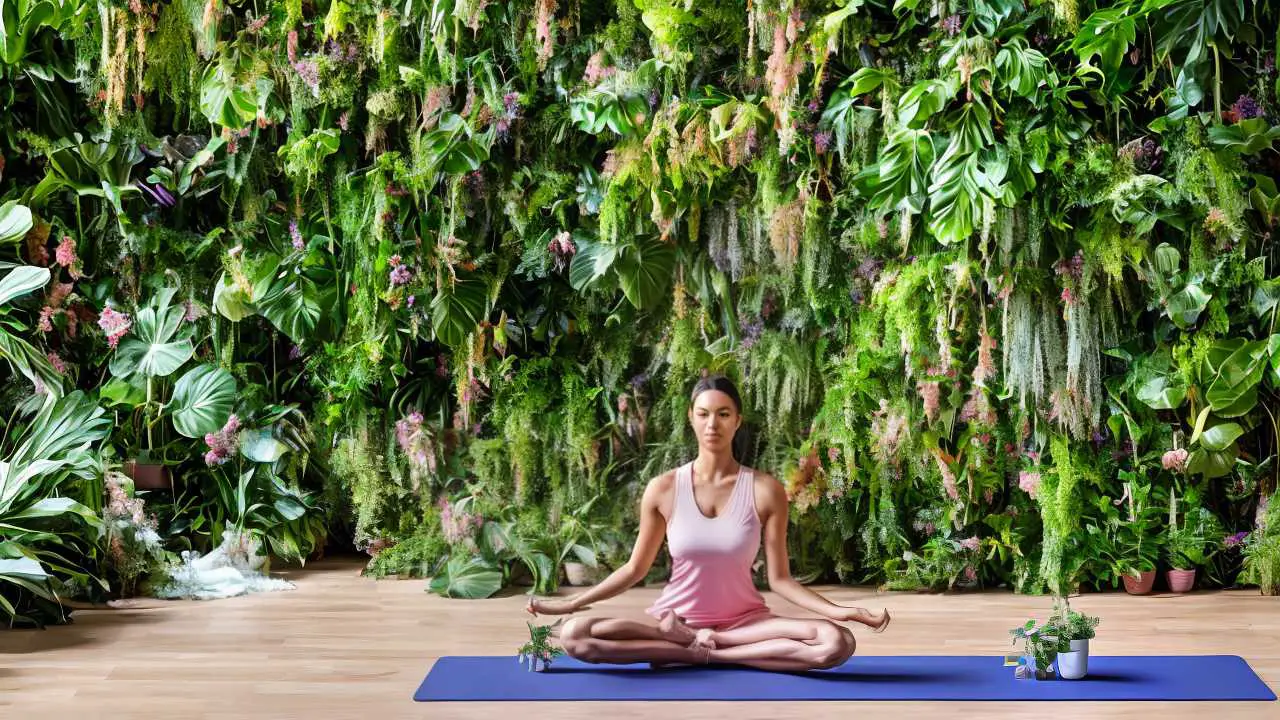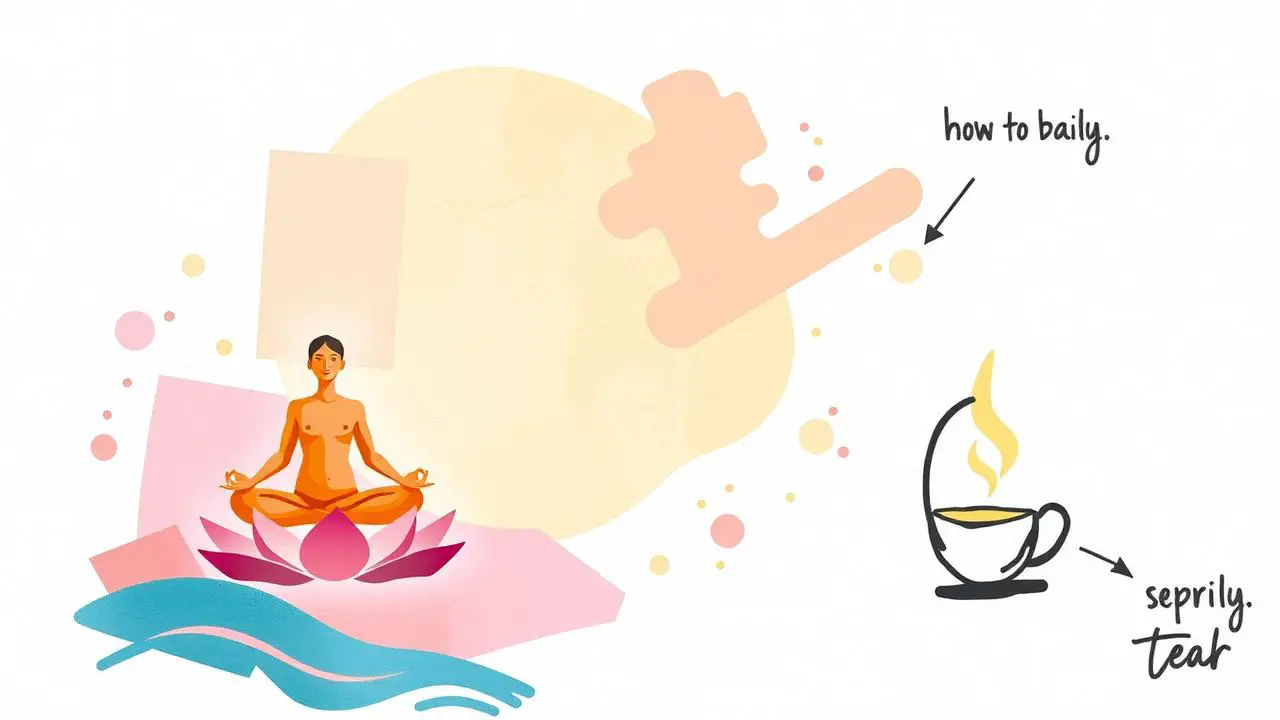For beginners in meditation, start with short sessions, about 5-10 minutes daily. It helps you lay a strong foundation for your practice. Gradually increase by 1-2 minutes each week to challenge your focus. Aim for 20-30 minute sessions over time. Listen to your body and mind for cues on when to extend. Celebrate each milestone in your journey. This approach builds consistency, focus, and mindfulness. Tailor your practice to align with your goals for the best results. Remember, each step forward enriches your meditation experience.
Key Takeaways
- Start with 5-10 minute sessions daily for beginners.
- Increase session duration by 1-2 minutes weekly.
- Gradually aim for 20-30 minute sessions.
- Listen to body and mind cues for time extensions.
- Celebrate milestones achieved in meditation journey.
Starting With Short Sessions
Wondering how long you should meditate as a beginner? Start with short sessions, like 5-10 minutes, to ease into the practice and build consistency. As a beginner, these brief moments of meditation can make a significant impact on your overall well-being. By keeping your sessions short, you set yourself up for success in establishing a daily practice without feeling overwhelmed by the time commitment.
Short sessions are perfect for beginners as they provide an opportunity to focus on the fundamentals of meditation, such as breath awareness. This foundational practice not only aids in calming the mind but also helps in developing mindfulness. Starting small allows you to gradually immerse yourself in the practice, making it easier to stay motivated and engaged.
Building Consistency and Focus
To establish a consistent meditation routine and sharpen your focus, beginners should aim for 5-10 minutes of daily practice. This duration allows you to ease into the habit without feeling overwhelmed. Here’s why this approach can benefit you:
- Gradual Progress: Starting with shorter sessions and slowly increasing the length helps in building your meditation skills steadily.
- Engagement: Shorter durations keep beginners engaged and attentive throughout the practice, enhancing the overall experience.
- Focus Improvement: Consistent daily meditation sessions are key to improving your focus and concentration over time.
- Mindfulness Cultivation: Regular practice fosters mindfulness, allowing you to be more present and aware in your daily life.
- Skill Development: By beginning with a manageable duration and sticking to a daily routine, you lay a strong foundation for building advanced meditation skills.
Progressing Towards Longer Meditations
As you continue your meditation journey, remember that progress comes with time and practice. Incrementally increasing your meditation sessions by 5 minutes each week can help you build focus gradually.
Embrace the challenge of longer sessions, and trust in your ability to adapt and grow in your practice.
Incremental Time Increases
Curious about how to gradually increase your meditation time for best growth and comfort? Here’s how you can incrementally extend your sessions:
- Begin with 5-10 minute sessions each day.
- Add 1-2 minutes to your meditation time weekly.
- Aim to reach 20-30 minutes per session over time.
- Listen to your body and mind for cues on when to extend.
- Celebrate each milestone in your meditation journey.
Building Focus Gradually
Gradually enhancing your focus during meditation can pave the way for longer and more fulfilling sessions. For beginners, starting with 5-10 minute sessions is ideal to ease into the practice. As you progress, aim to increase your session length weekly to challenge and strengthen your focus.
Once you feel comfortable, gradually extend your meditation time to 15-20 minutes. Consistency is key in this journey. Make sure you meditate for at least 10 minutes daily to enhance your concentration abilities effectively.
Adjusting to Personal Needs
As you start on your mindfulness journey, it’s vital to ponder your individual needs and preferences when deciding the length of your practice sessions. Customizing your meditation routine to match your comfort level can improve the overall experience and make it more sustainable in the long run.
Individual Meditation Durations
For beginners, adjusting individual meditation durations to personal needs is essential for establishing a sustainable practice. When determining the best length for your meditation sessions, keep in mind that consistency is more important than duration. Here are some key points to bear in mind:
- Session lengths vary based on personal goals and daily schedule.
- Start with 5-10 minutes daily and gradually increase to 20-30 minutes for maximum benefits.
- Pay attention to how different session lengths impact your practice.
- Avoid excessively short sessions that may not allow for deep focus.
- Be cautious of overly long sessions that could lead to fatigue or frustration.
Tailoring Practice Sessions
To tailor your meditation practice sessions effectively, consider your individual needs and preferences to guarantee a personalized and beneficial experience. It’s important to start small, especially if you’re a beginner. Begin with shorter sessions, perhaps just a few minutes per day, and then gradually increase the amount of time as you become more comfortable.
Listening to your body and mind is key in determining what works best for you. Adjust the duration based on your experience level and how you feel during and after each session. Remember, personalizing your practice ensures that you have a sustainable and enjoyable meditation experience. So, take the time to find the ideal length that suits you best.
Customizing Techniques for Comfort
Consider adjusting and customizing meditation techniques to cater to your personal needs and preferences for a more comfortable practice experience as a beginner. Finding a balance between essential and relaxation is vital for sustaining your meditation practice. Here are some tips to help you customize your meditation techniques for comfort:
- Experiment with different meditation positions to find what feels most comfortable for you.
- Adjust the length of your meditation sessions based on your individual preferences and comfort level.
- Explore various meditation techniques to see which resonates best with you.
- Create a calming environment by incorporating elements that bring you comfort, such as soft music or dim lighting.
- Listen to your body and mind, adapting your practice to suit your needs and enhance your overall meditation experience.
Maximizing Benefits With Optimal Length
When aiming to maximize the benefits of meditation as a beginner, starting with shorter sessions and gradually increasing the length can be a helpful approach. Begin with 5-10 minutes daily to establish consistency. As a beginner, targeting 20-30 minutes per day can enhance focus and relaxation. It’s important to adjust the duration based on your comfort and needs.
Consistency is key for beginners to notice improvements in mindfulness and stress reduction. Short, frequent sessions can effectively build your meditation practice. Remember, there’s no one-size-fits-all approach, so listen to your body and mind.
Prioritizing Duration Vs. Frequency
Finding the right balance between the duration and frequency of your meditation sessions is crucial for beginners looking to establish a sustainable practice. When prioritizing duration vs. frequency in your practice, remember the following:
- Start with Manageable Session Duration: Begin with shorter, more manageable sessions to ease into your meditation routine.
- Focus on Consistent Practice: Regular, shorter sessions are more beneficial than longer sessions done irregularly.
- Gradually Increase Session Length: As you progress, gradually increase the duration of your sessions while maintaining consistency.
- Emphasize Daily Practice: Aim for daily meditation to build a strong foundation for your practice.
- Experiment for Personal Preference: Don’t hesitate to experiment with different session lengths and frequencies to discover what works best for you.
Experimenting for Individual Preferences
To tailor your meditation practice to suit your personal preferences, beginners should actively experiment with varying session lengths. It’s essential to find a duration that feels manageable and enjoyable for you. Some may thrive with shorter sessions, while others might prefer diving into longer periods of practice.
Starting with a comfortable duration is key, allowing yourself to ease into meditation and gradually increase the length as you feel ready. By customizing your sessions based on what feels right for you, you can make your practice more sustainable in the long run.
Discovering what works best for your individual preferences can enhance the overall experience and benefits you gain from meditation. So, don’t be afraid to try out different lengths and see what resonates with you the most. Remember, the goal is to find a balance that supports your meditation journey and keeps you motivated to continue.
Aligning With Meditation Goals
Consider aligning your meditation duration with specific goals such as stress reduction, focus improvement, or emotional well-being to maximize the benefits of your practice. When starting your meditation journey, keep in mind the following tips to help you align with your meditation goals effectively:
- Tailor your meditation session: Adjust the length of your meditation sessions based on your desired outcomes and personal preferences.
- Enhance effectiveness: Matching your meditation duration with your goals can enhance the effectiveness and benefits of your practice.
- Experiment for best results: Try out different session lengths to determine what works best for your specific meditation goals.
- Understand the correlation: Recognize the connection between meditation duration and the results you aim to achieve to guide your practice effectively.
- Personalize your practice: Customizing your meditation sessions to align with your goals can help in reducing stress levels and improving overall well-being.
Frequently Asked Questions
How Do Beginners Start Meditating?
To start meditating as a beginner, explore mindful breathing, guided meditations, relaxation techniques, visualization exercises, body scans, mantra meditation, and walking meditation. Begin with short sessions in a quiet, comfy space for consistency and growth.
Is Meditating for 20 Minutes Enough?
Feeling unsure about the duration? Understandable! Remember, consistency trumps duration in the beginning. Starting small and building up guarantees progress without overwhelm. Embrace the process; benefits await your commitment.
Is 5 Minutes Meditation Enough for Beginners?
Starting with 5 minutes of meditation is great for beginners. It offers benefits like stress relief, focus improvement, and finding peace. Remember to practice daily, use mindfulness tips, and try different breathing techniques for a well-rounded experience.
Can a Beginner Meditate for 1 Hour?
Sure, diving into a full hour of meditation as a beginner can be quite the challenge. It’s best to start with shorter sessions, like 5-10 minutes, focusing on proper posture, breathing, setting intentions, and building stamina gradually.
Conclusion
So, go ahead and meditate for hours on end. Just kidding! Remember, meditation is about quality, not quantity.
Find the right balance that works for you and stick with it. Whether it’s five minutes or fifty, the important thing is to make it a regular practice.
Keep experimenting, stay focused, and enjoy the journey towards inner peace and mindfulness. Remember, Rome wasn’t built in a day, and neither is a zen mindset.
Keep calm and meditate on!
Frequently Asked Questions
How can I stay motivated to meditate regularly?
Staying motivated to meditate can be a challenge. Try setting a regular schedule, finding a quiet and peaceful place to meditate, and observing the benefits that you experience from the practice. Consider meditating with others or joining a meditation group for additional motivation.
How does meditation help?
Meditation can help reduce stress and develop concentration. It encourages a healthy lifestyle, increases happiness, acceptance, and self-awareness, slows aging, reduces blood pressure, and benefits cardiovascular and immune health.
How does meditation help with stress?
Meditation helps to trigger the body’s relaxation response which can help lower stress, reduce heart rate and blood pressure, slow down breathing and stabilize blood sugar levels. It can also help you become more aware of thoughts and emotions that contribute to stress.
Statistics
- Studies have found that regular meditation can reduce heart disease risk by managing stress levels and promoting a healthier lifestyle.
- According to a 2017 National Health Interview Survey, 14.2% of American adults had practiced meditation within the past year.
- According to the CDC, the use of meditation has tripled from 2012 to 2017 in the United States.
- A survey by the National Center for Complementary and Integrative Health revealed that 8% of American children have tried meditation.
- A study from the University of California found that regular meditation decreased the symptoms in patients with Irritable Bowel Syndrome and Inflammatory Bowel Disease.
- A study funded by the National Institutes of Health found that Iyengar yoga and mindfulness meditation can help reduce blood pressure.
- The University of Sussex published a study suggesting that mindfulness meditation promotes divergent thinking, a type of thinking that allows new ideas to be generated.
- A 2015 study published in The Lancet found that mindfulness-based cognitive therapy, a form of meditation, was as effective as antidepressants in preventing depression relapses.
- A study from the Department of Medicine at the Johns Hopkins University School of Medicine indicated that meditation can provide a level of relief from symptoms of anxiety and depression similar to that of antidepressant drugs.
- A 2012 study published in the Journal of American College Health found that college students who practiced meditation showed decreases in perceived stress.
External Links
- The Headspace website offers a free basic course in meditation for beginners.
- Tara Brach offers a library of free guided meditations for different needs.
- The Calm website offers an app that provides guided meditations, sleep stories, and other resources to promote relaxation.
- Mindful.org offers an array of resources for getting started with mindfulness and meditation.
- The Chopra Center offers articles, programs, and tips on meditation.
- On Vipassana Meditation, you will find guided meditations and detailed articles about the practice.
- The Buddhaimonia website provides helpful blog posts for those who are new to meditation.
- Ten Percent Happier has a variety of meditation courses for different facets of life, ranging from relationships to work, and also offers a free trial.
- UCLA Health’s Mindful Awareness Research Center provides free guided meditations in both English and Spanish.
- Verywell Mind offers a guide to meditation for beginners, with step-by-step instructions.
How To
How To Do Mindfulness Meditation
Mindfulness meditation involves focusing on the present moment without judgement. To start, sit comfortably and close your eyes. Pay attention to your breath, feeling the sensation of each inhale and exhale. Notice the thoughts, feelings and sensations that arise, but instead of reacting, simply observe them as if from a distance. When your mind wanders, gently return your focus to your breath. Aim for short sessions at first, slowly increasing as you feel comfortable.




